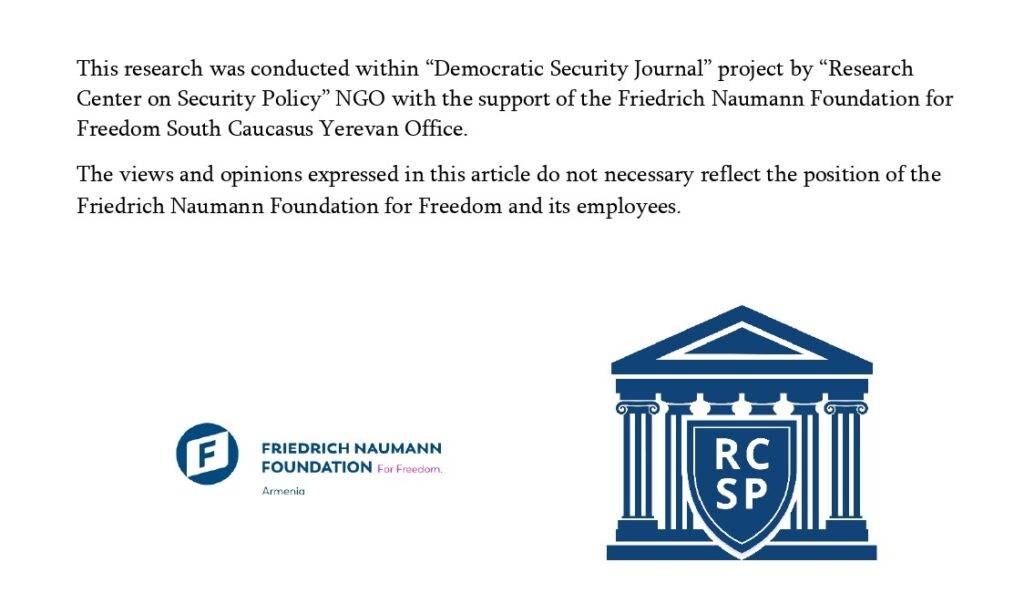Introduction
On December 5, 2024, the National Assembly approved a package of amendments to the RA Electoral Code and related laws. This concluded a process that lasted approximately two years, aimed at optimizing regulations for the anticipated 2026 parliamentary elections, which has been partially successful. In this work, we will examine the adopted regulations and assess their potential positive and negative impacts on democratic institutions. Although theoretical changes to election game rules are possible, this essentially represents the final complex regulatory change leading up to 2026.
More Accessible Elections
One of the package’s significant achievements was increasing election accessibility in several dimensions, made possible through cooperation between state bodies, CSOs, and international organizations.
Primarily, the law guarantees proper equipping of polling stations to accommodate members of electoral commissions, specialists, and individuals with mobility challenges who have the right to be present in voting rooms. In this context, the requirement of one voting booth per 750 voters is reduced to 600, and the law mandates station equipment that ensures unobstructed voting rights for individuals with disabilities and mobility challenges while maintaining ballot secrecy. Moreover, the newly adopted package allows voters with mobility issues to electronically or manually choose a properly equipped polling station convenient for them. Finally, the electoral code obliges the Central Electoral Commission to provide additional means for visually impaired individuals, such as Braille templates and magnifying glasses.
These changes represent a positive shift and significantly enhance election accessibility. Although not all polling stations are yet fully adapted to conditions ensuring complete electoral rights for people with mobility issues, the proposed actions suggest a high probability of effective work in this direction.
Sex-Balanced Representation
The Electoral Code stipulates that the proportion of representatives from the less represented sex in electoral lists must be at least 30%, with one representative of the less represented sex required in each list’s triad.
However, post-election mandate allocation processes lack regulations, which in practice led to representation lower than the aforementioned 30%. In Armenia, the female sex is less represented. In many cases, particularly in local self-government elections, the mandates of women elected through lists would be relinquished, significantly reducing that 30%. For example, in the Aparan community council, women’s representation is 0. While cases of women relinquishing mandates might vary across communities, a clear pattern is noticeable, substantially reducing women’s political participation.
One proposed solution in the package was criminalizing forced mandate relinquishment. However, this is difficult to prove, and women’s mandate relinquishment is not always due to coercion. Based on CSO proposals, which were incorporated into the amendments, if no representatives of the less represented sex exist in the electoral list, those mandates remain vacant. Thus, an additional incentive is created for parties to ensure women’s representation, in the form of not losing mandates. This is, of course, an important but temporary solution to regulate balanced sex representation in elected bodies. In the future, this provision should be reviewed after achieving the desired result, to ensure it doesn’t harm voters’ preference for proportionally elected bodies.
Conducting Elections During Emergency and Martial Law
The most contentious and discussed issue in the electoral package was regulation of election conduct during emergency and martial law. All process stakeholders emphasized the issue’s importance and potential political and democratic risks. Without detailing various proposed solutions regarding conducting, postponing, or summarizing elections, it should simply be noted that responsible state bodies, recognizing the issue’s significance, decided to remove the question from the package and commit to returning to discussion with more evidence-based solutions and broader consensus.
In this section of the work, we will address the package’s negative aspects, which, unlike the previous points, can be considered regressive in terms of democratic development, process inclusiveness, and consistent policy implementation.
Political Financing Oversight
In one of our previous works[i], we addressed issues of political financing oversight. Over the past three years, it was determined that oversight should be centralized in one body. The campaign financing oversight component was to be transferred from the CEC Control and Verification Service (CVS) to the Anti-Corruption Commission, which would allow more effective implementation by centralizing the supervisory function[ii]. However, primarily due to the CEC’s limited capabilities, the function transfer was postponed each year. This package finally closed the issue of oversight function distribution. It was decided that the campaign financing function would remain within the CEC CVS’s domain. Centralizing the oversight function in one body would enable comprehensive, unified oversight of political financing. Now, one can only hope that the two bodies will cooperate as much as possible and harmonize their approaches to ensure the effectiveness of the oversight function is not compromised.
This functional division and other regulations in the package create additional challenges for observer organizations, media, and citizens in monitoring party and pre-election fund financing. Specifically, according to the newly adopted package, parties participating in proportional elections can only make financial transfers to their pre-election funds from their own sources. This means the party will receive donations from various individuals during the pre-election period and transfer them under its own name to its fund. The main obstacle is that the party donors’ data is revealed in annual reports – once a year, by February 20th of the following year. Thus, voters and other interested parties will not have the opportunity to learn about the party’s pre-election fund donors and, accordingly, make informed decisions in the election context, which is an internationally recognized important criterion[iii].
Party Financing Limits
The most problematic regulation in the amendments package concerned raising party financing limits. In one of our previous works, we discussed private party financing and existing limits in Armenia[iv]. The existence of limits is an important mechanism that enables democratic equal participation and reduces the risk of oligarchs’ and wealthy individuals’ influence on politics. In Armenia, one person could donate a maximum of 2.5 million drams annually to a party, and a party could collect a maximum of 500 million drams in a year. Notably, the annual 2.5 million limit is indirectly linked to Armenia’s average salary (approximately 250,000 drams monthly). The package raised these limits to 10 million and 1 billion drams, respectively. Few people in Armenia can donate 10 million drams annually to parties, which significantly increases dependence on these individuals and their influence on the political system, violating the principle of democratic equal participation. Regarding the annual 1 billion limit for parties, ongoing data monitoring shows almost no parties capable of collecting amounts close to the 500 million limit, making the 1 billion limit increase baseless and creating unequal competitive conditions between parties.
Moreover, this change was implemented hastily, before the second reading, solely through the mutual agreement of two parties: Civil Contract and ARF. It is no coincidence that these are precisely the two parties with the most financial flows.
Conclusion
In summary, those points in this package that were the result of long and inclusive discussions have significantly improved the electoral institutional field, while the under-discussed points, which also include the essentially abolished state-targeted financing component, create additional problems and risks for democratic development. Issues of administrative resource abuse and third-party financing continue to remain under-regulated. One should expect that the state, CSOs, and citizens will keep these issues on the legislative reform agenda.
[i] https://rcsp.am/entry/4697/2026-tvakani-xorhrdaranakan-yntrutyunnerin-yndaraj-xaghi-kanonneri-masin/
[ii] https://www.venice.coe.int/webforms/documents/?pdf=CDL-AD(2023)030-e
[iii] https://images.transparencycdn.org/images/2412_PP_IntegrityStandardsPolFin_FIN_EN.pdf
[iv] https://rcsp.am/entry/5290/kusakcakan-hamakargi-yndhanur-nkaragiry/
Autor: RCSP associate Tigran Mughnetsyan
Photo by Infocom


